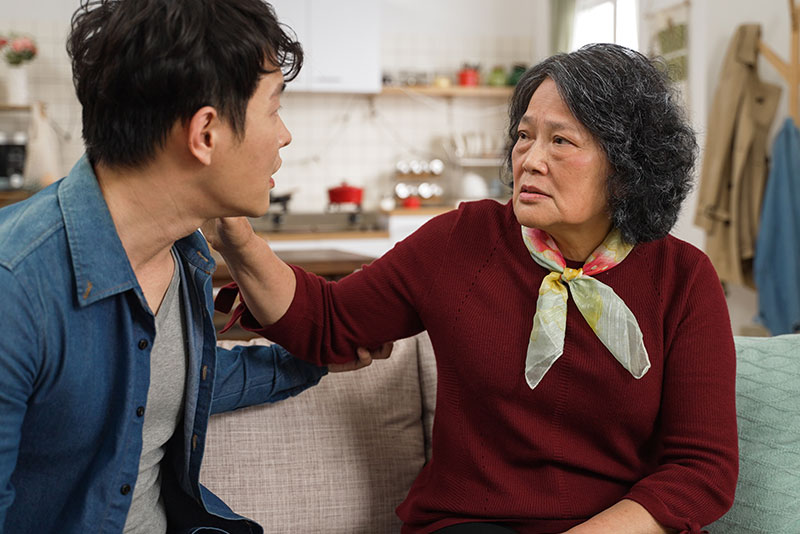
Low Vision and Dementia Tips and Activity Ideas When it comes to finding activities for our loved ones with dementia and vision impairment, it can be challenging. It is important to ensure that every day offers purpose, joy and meaning for them. When getting started try thinking about their current or past hobbies, interests and lifestyle. By using their preferences as a guideline to come up with creative and engaging activities. Here are some ideas to help get you started. Our Windsor-Essex home care team has created low vision and dementia tips to help assist you. By creating a playlist of loved ones favorite songs or genre of music, getting them to dance or sing or keeping the beat by clapping their hands or a homemade instrument such as a container with seeds. By reading aloud from an article or their favorite magazine or book. Once done, engage in a conversation on the topic that was just read. By getting loved ones up and moving can help improve muscle tone and circulation, as well as help to promote daytime wakefulness and…

How to Help Overcome Dementia Restlessness When signs of dementia restlessness start to appear in a loved one - wandering, pacing, fidgeting, it is important to take action before they escalate to agitation, aggression or leaving the home. Understanding the reason for their uneasiness is often the first step in addressing this issue effectively. For starters, consider the following questions: Could the senior be hungry or thirsty? Have they been sedentary too long and need to move? Is anything causing the person physical discomfort or pain? Are there too many distractions in the room? Are the visitors who could be producing distress or anxiety? Might they need to use the restroom? Are they bored? In uncertain situations, by fulfilling potential physical needs. By asking if they would be interested in a snack or something to drink, keep an eye out for nonverbal cues that may show they are in discomfort. If there is suspicion of pain please contact the physician for guidance. When facing an emotionally driven issue, it can be helpful…

Dementia and Sleeplessness: How to Resolve This Common Problem It is not uncommon for our loved ones with Alzheimer’s to experience changes in their sleep patterns. The combination of dementia and sleeplessness is still not completely understood, but it is believed that disruptions to the sleep pattern may play a role. The progression of the disease can lead to increased fatigue and exhaustion, making it more difficult for our loved ones to engage in daily activities. Additionally, certain medications prescribed for dementia can have side effects that may worsen sleep problems. Why a Good Night’s Sleep is Crucial for a Senior with Alzheimer’s With decreased sleep quality in dementia can lead to an increase in delusions and restlessness, which could cause serious safety concerns for our loved ones. The risk of wandering and a possibility of getting lost or injured. Additionally, seniors who are sleepy during the day may be less inclined to engage in healthy activities such as spending time outdoors, doing some exercise, engaging in conversations. …

The Unique Vision Problems with Dementia and How to Help The process of vision is truly fascinating. In a split second, our brains can receive and process information from our surroundings, along with the input from our other senses, memories, and thoughts. This allows us to form a percentage of what we see, making us more aware of our visual surroundings. It is amazing how our brains enable us to see the world around us. Dementia can cause various vision problems that are unique to this condition. These vision problems can affect different aspects of our visual perception. Depth and /or color perception Contrast Motion detection Peripheral vision In addition to a distorted sense of reality, seniors with dementia often experience illusions. For example, they may mistake a shadow on the ground for something harmless like a family pet, and may believe it to be an intruder. This can be challenging for our caregivers or family members. Other vision problems associated with dementia include. Misinterpreting reflections in glass or mirrors for…

”I’m Not Going!” Overcome Alzheimer’s Stubbornness With These Tips Among the many challenges of providing care for a loved one with Alzheimer’s disease, there’s one in particular that too often goes unmentioned: the digging-in-of-the-heels when there’s a need to leave home for a medical appointment, therapy or other important activity. Experienced by many with dementia is the fear of leaving the familiar and venturing into an unknown – and due to the very nature of dementia, sadly, even the familiar can quickly become unknown. How can you overcome Alzheimer’s stubbornness and get where you need to go without further escalating the person’s distress? To help ease these battles and accomplish what needs to be done with a greater deal of peace, try these tips: Choose your battles. Is the outing negotiable? Naturally, if it’s a scheduled appointment, simply skipping that appointment isn’t the best option. If it’s possible, however, to rearrange your plans to a day when the senior might be more agreeable, by all means, do so. Choose the best…

How to Handle Mistaken Identity in Dementia You have been taking care of Mom since her dementia diagnosis. You have been working through many of the challenging symptoms. Yet one day, she looks at you and calls you by a different name – that of her husband or father or younger brother. Do you correct her, reminding her that you’re her son? Should you let it slide, pretending you didn’t notice the mistake? Or, should you just roll with it, accepting the new identity she has given you? What’s the best way to handle mistaken identity in dementia? The loss of recognition is among the more painful outcomes of dementia on loved ones. It’s hard to look into a loved one’s eyes and receive a blank stare in return, or even to be called by a different name. It is essential to set aside your own personal feelings temporarily, however, while you respond to the individual. (We will get back to your emotions in a moment!) How to Respond to Mistaken Identity in Dementia First, know that your tone or voice and attitude are infectious.…




















